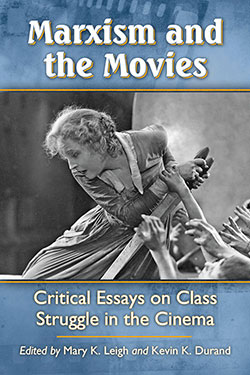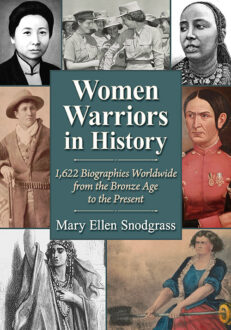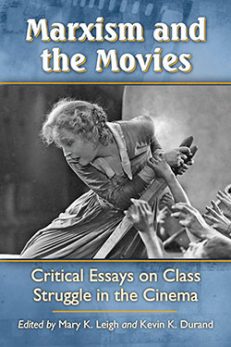Marxism and the Movies
Critical Essays on Class Struggle in the Cinema
$29.95
In stock
About the Book
The work of Karl Marx is revered in social philosophy, political science and literary criticism, but there is an area where Marxism seems not to have penetrated. That area is the study of popular culture, especially the cinema, where Marxism provides a useful lens through which seemingly disparate films can be explored.
As a whole the new essays assembled here approach a wide cross-section of cinematic history and provide analysis of blockbusters, cult hits, comedies, suspenseful dramas and history-making films within a framework of power, power relations and class struggle. The collection brings to popular culture studies the same scholarly weight that attends the work of Aristotle or Plato or Derrida and, at the same time, presents that scholarship in an accessible style.
About the Author(s)
Bibliographic Details
Edited by Mary K. Leigh and Kevin K. Durand
Format: softcover (6 x 9)
Pages: 196
Bibliographic Info: notes, bibliographies, index
Copyright Date: 2013
pISBN: 978-0-7864-7123-2
eISBN: 978-1-4766-1246-1
Imprint: McFarland
Table of Contents
Table of Contents
Preface (Kevin K. Durand) 1
Introduction: Marx, Critical Theory and the Cinema (Kevin K. Durand) 3
Part I: The Pre-War/Silent Era
Marx and Metropolis: The Farce of Religion in the Face of Dystopia (Mary K. Leigh) 17
Metropolis: Proletarian Triumph or Opiate of the Masses? (Alan Williams) 29
Love in the Time of Capitalism: A Marxist Feminist Reading of Modern Times (Brooke Beloso) 40
Part II: The Post–War Era
“She look like a wrong one to you?” BloodyMoneyBody—Marxist Subversion in Hitchcock’s Psycho and Frear’s The Grifters (Gregory Borse) 53
Replicants and the Commodity Form: A Marxian Reading of Blade Runner (J. Eric Lambert) 77
“Somewhere That’s Green”: The Dream of the Middle Class in Frank Oz’s Little Shop of Horrors (Traci J. Cohen) 97
Apocalyptic Redux: (Re)Vision and Recognition in Terry Gilliam’s Twelve Monkeys (Jeremy Burns) 104
Part III: The New Millennium
TechNoir and the Critical Dystopia in the 21st Century: Wimmer’s Equilibrium (Alexander Charles Oliver Hall) 121
Who’s Coming for Dinner? An Examination of A History of Violence (Leslie Seawright) 133
A Marxist Look at Avatar (Tim Delaney and Ellen Reed) 145
A Myth (Not So) Betrayed: Ridley Scott’s Robin Hood and the Political Evolution of the Greenwood (Jacob Lewis) 164
About the Contributors 185
Index 187





